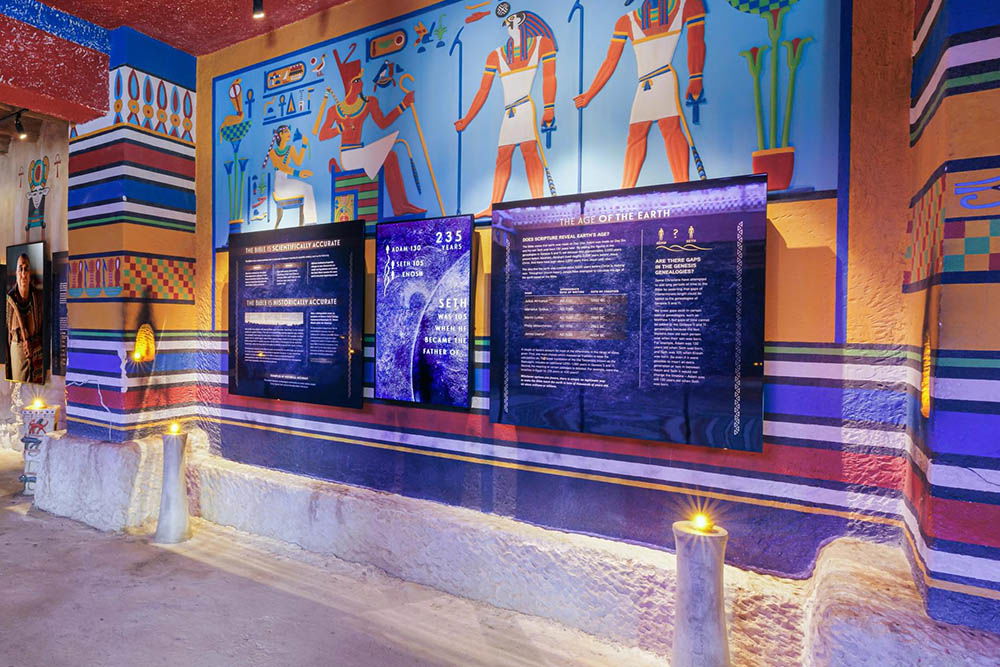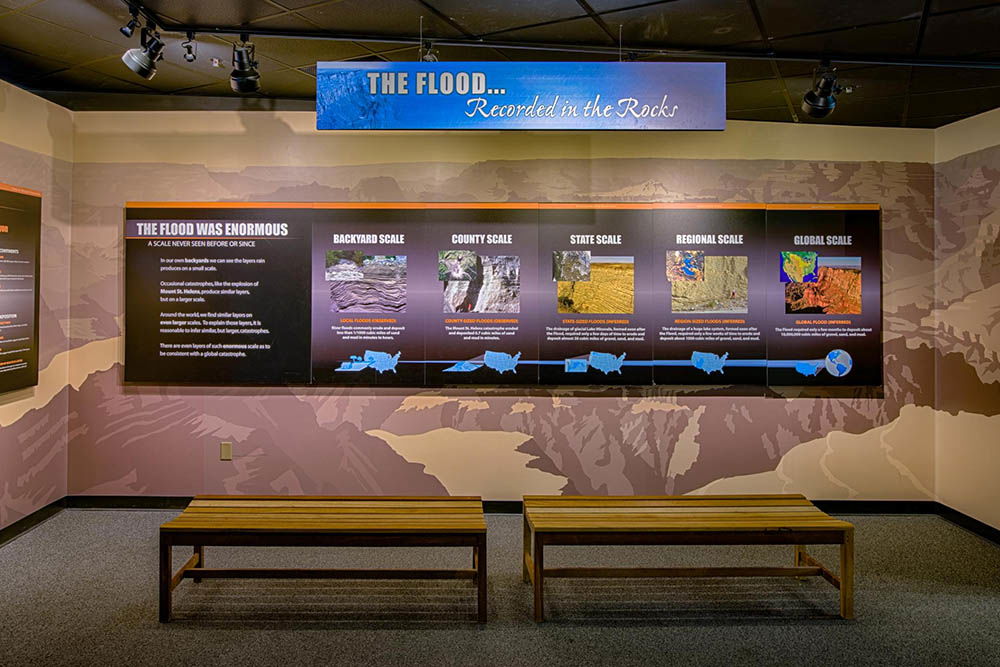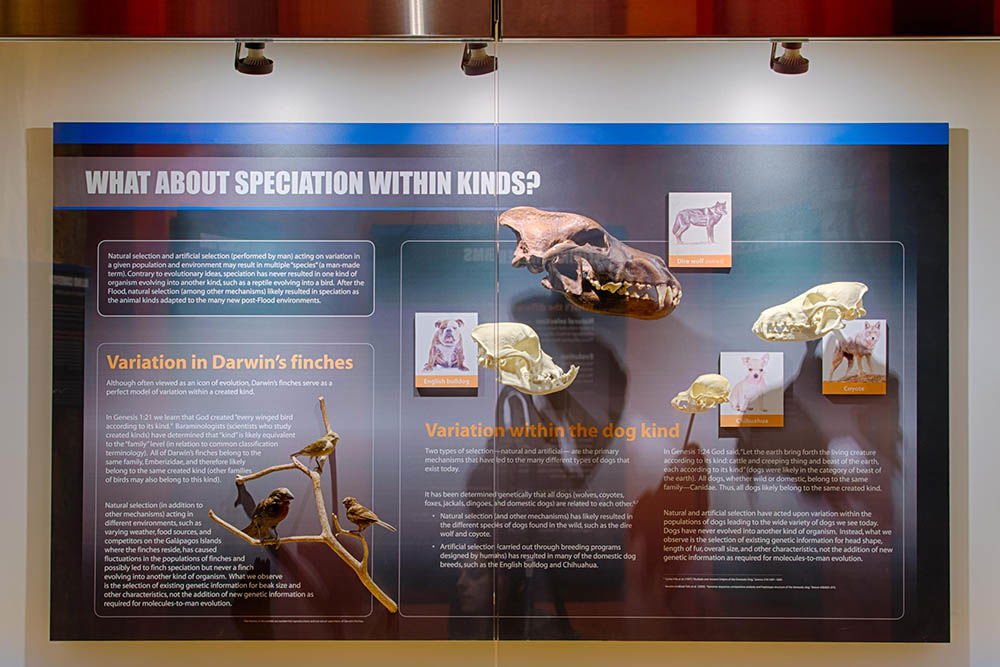Is the Bible Scientifically and Historically Accurate?
on November 9, 2023Our view of the Bible models the approach set by the Lord Jesus Christ. When confronted with questions, Jesus frequently replied by citing Scripture, introducing his responses with phrases such as, “Have you not read . . . ” or “It is written . . . ”
His example demonstrates that he viewed Scripture as historically accurate and authoritative for every area of life.
But how do we know the Bible is reliable? Our Biblical Authority exhibit answers this question and more.

The Scientific Reliability of the Bible
The Bible is not a science textbook, but it is accurate whenever it touches on scientific matters such as the following:
Geology
Abundant evidence for the global flood described in Genesis 7–8 is found around the world in the many layers of fossil-bearing sediments that stretch across continents.

Biology
God made plants and animals according to their kind. There is diversity within each kind, but one kind has never given rise to another kind.

Science textbooks frequently change as new discoveries are made and hypotheses are formed, but God’s Word remains the same and is true from beginning to end.
The Historical Reliability of the Bible
One of the many aspects that sets the Bible apart from other “holy books” is that its truth claims are rooted in history. The truth of its overarching message depends upon whether the episodes it describes truly took place (1 Corinthians 15:14–17). For example, the Bible reports that its central figure, Jesus Christ, spoke to huge crowds in first-century Israel before being killed in a public execution. So, the claims of Christianity can be examined historically, unlike the many faiths that make no attempt to ground their claims in history.
The historical reliability of the Bible has been scrutinized like no other book, yet centuries of critical and skeptical attacks have failed to repudiate Scripture. In fact, most of the negative criticism launched against the Bible is based on one’s philosophical presuppositions rather than the findings of archaeological and historical investigations, which have repeatedly confirmed biblical accounts.
Start planning your trip to the Creation Museum today, and be sure to spend time in our Biblical Authority exhibit to see how science and history confirm that you can trust the Bible.